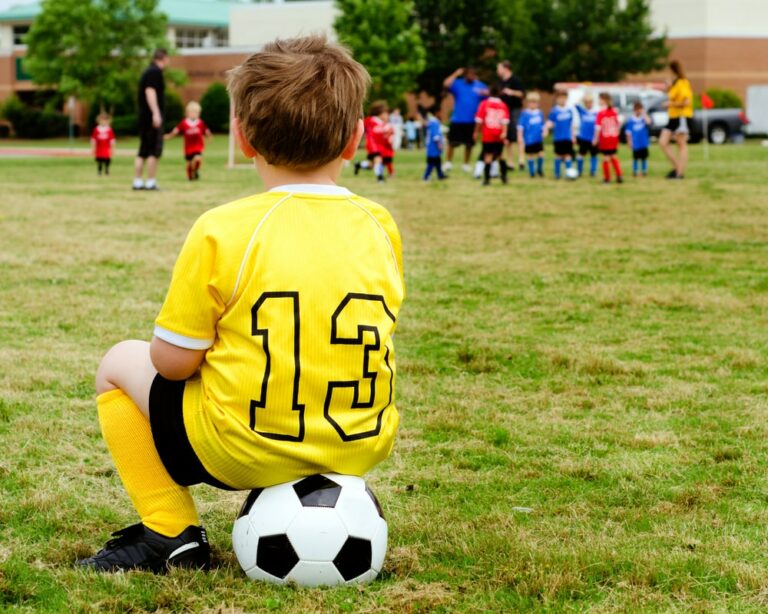Teaching Your Kids How To Fail Is A Hard Lesson, But An Important One
 Successfully failing is a skill. I know this, because it’s one that I do not possess. That’s why I plan to let my kids fail 1.) early and 2.) as often as necessary until they learn how to do it without concluding that they are a bad, talentless person and/or that they should never try anything again.
Successfully failing is a skill. I know this, because it’s one that I do not possess. That’s why I plan to let my kids fail 1.) early and 2.) as often as necessary until they learn how to do it without concluding that they are a bad, talentless person and/or that they should never try anything again.
When I was a teacher, one of the things I noticed most was how unprepared students were for the bitter taste of failure. There were some rock stars who came in after skimming the low C or D grades on a test (or the low B grades, or even the low A grades in some cases) and wanted to know what they could be doing better. Their response to failure was to chalk it up to a learning experience and try to bounce right back into the swing of things. The students from this group that I still keep in touch with are, not entirely surprisingly, well on their way to world domination.
But by far the most common response from students was a total lack of coping with failure. The questions I got asked were not so much, “Where did things go off the rails, and how can I avoid this next time?” as “Why are you willing to ruin my life by giving me an A- instead of an A?” Or possibly, “Should I give up on being pre-med in college after I failed this quiz in high school biology?” And then worse still, I might sometimes get a parent calling and asking how the child could ‘fix’ his or her bad grade. Redo? Extra credit? Make-up assignment? Having a parent swoop in to try to fix every screw-up shows kids one unfortunate thing: that messing up is a world-shatteringly Big Deal that cannot be escaped without a parent’s aid.
It wasn’t really these students’ fault that they found a bad grade or a flunked homework assignment the end of the world. Kids aren’t born knowing how to handle failure–it’s something they have to be taught, and sometimes as parents we want to teach them the exact opposite lessons. We want to wrap them up in a comfortable swaddle to protect them from the entire world for as long as possible, to spare them the pain of our own all-too-well-remembered rude awakenings. But it doesn’t do kids any favors to always keep them in their comfort zone. Trying new things, failing, and learning how to grow from it is a part of life–is a pretty big part of life, in fact. It does, however, entail giving them the space and opportunity to fail, and the chance to deal with the actual fallout when it does–as well as someone they can talk to about how they feel and about where to go from there.
Before the imminent objection arises, let me say of course I don’t mean you always have to let your kids fail no matter what: you don’t need to let your three-year-old learn the hard way not to play with matches. But age-appropriate failure is an important milestone for kids to achieve. And yes, it’s always hard to watch your kids fail, but preventing them from doing so is just postponing the inevitable, and ensuring that it’ll be much more shocking when it does finally happen. Kids need the occasional skinned knee, bad grade, or embarrassment of failing to practice for a music lesson–and the only way that it can is for the parental safety net to come down sometimes. The good news is that the world doesn’t end actually end when we fail … even if it does feel a little bit like that at the time.
(Image: metinkiyak / Getty)






